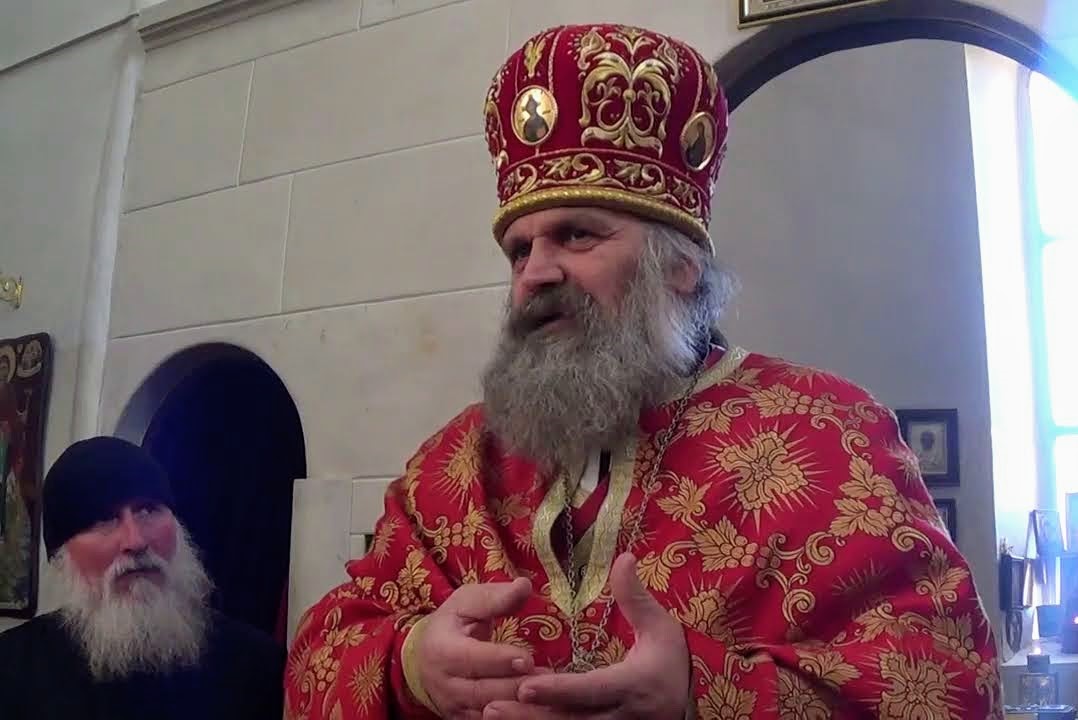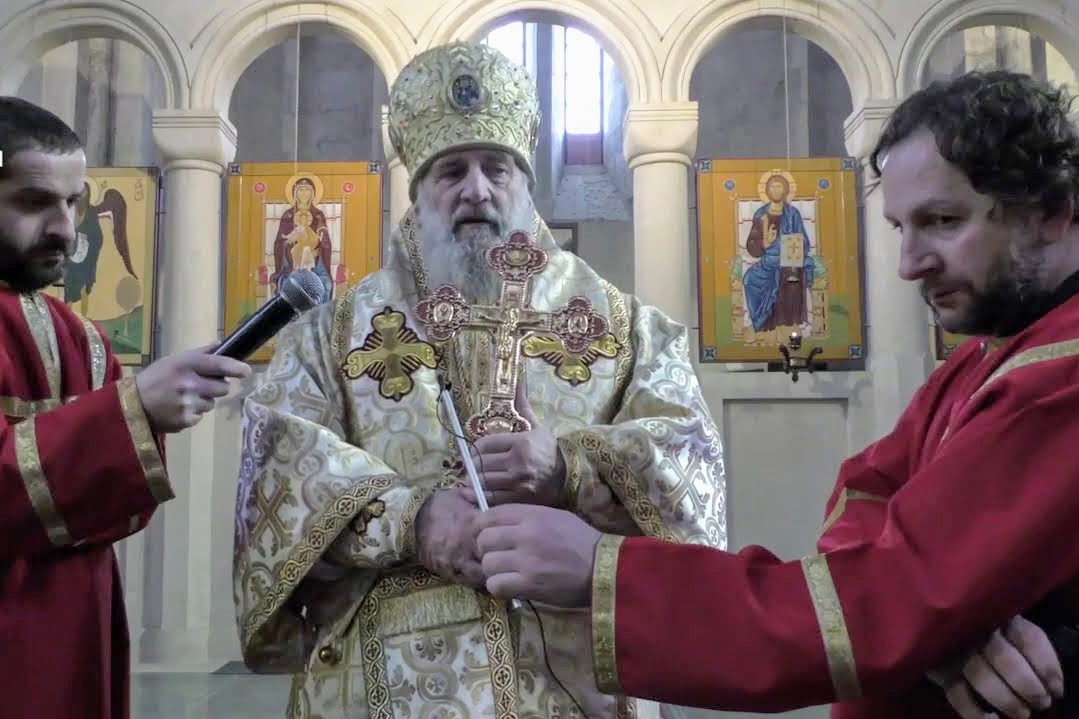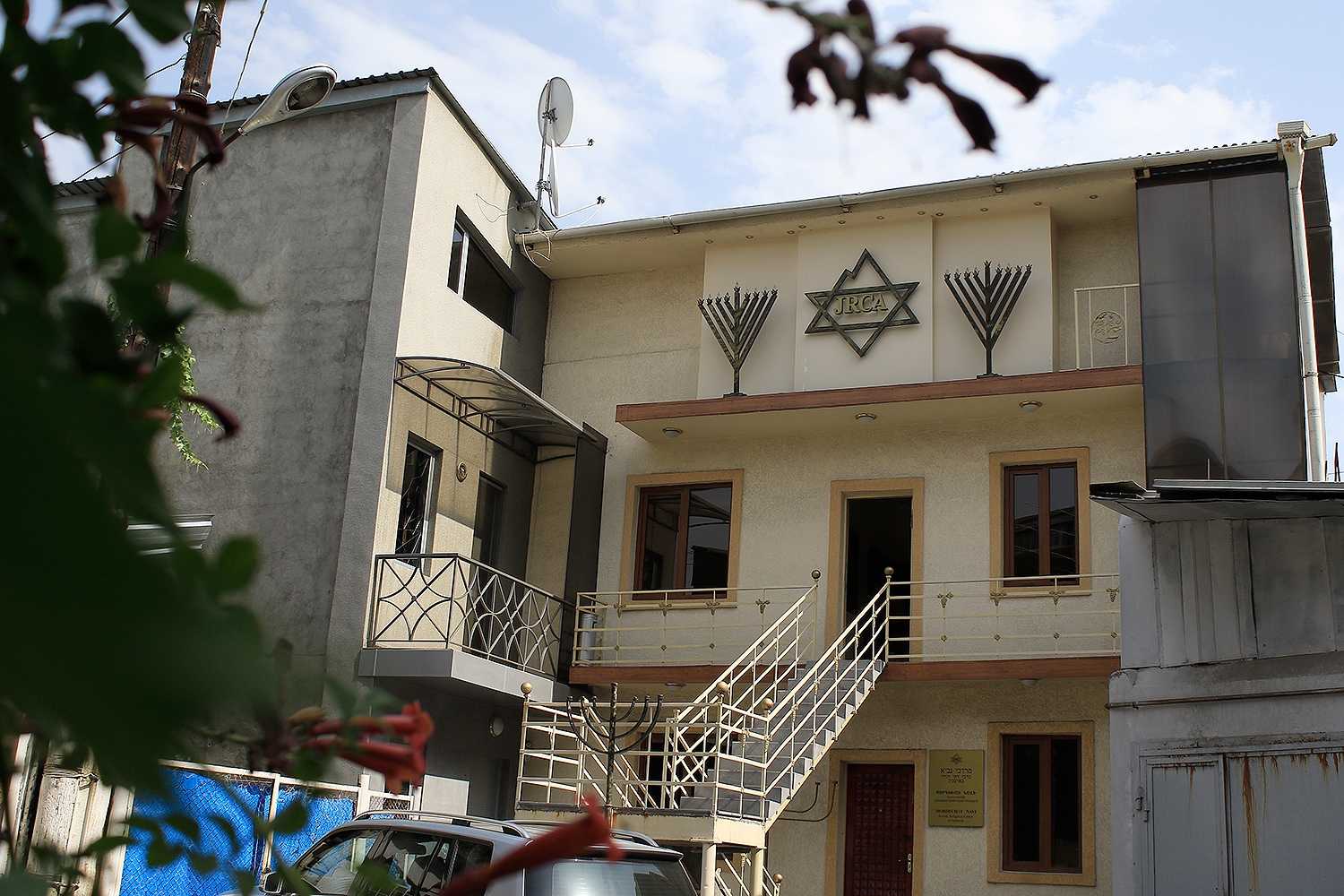
The Georgian Orthodox Church has come under fire for a series of antisemitic sermons and comments by high-profile clergymen.
On Monday, while dismissing accusations of antisemitism in the Church and attacking those he said had ‘spewed’ such allegations, Ilia Karkadze, a deacon at the Trinity Cathedral in Kutaisi, voiced a number of antisemitic conspiracy theories.
While insisting that antisemitism was historically alien to Georgia, Karkadze warned of ‘Zionist groups’ on the side of ‘unkind forces’. He then suggested that Jewish people ‘controlled the whole banking system’, both during the USSR and now.

Citing ‘prophecies’ by 18th–19th-century Russian monk Vasiliy Vasilyev, Karkadze insisted that the ‘Uria’ (Jewish people) had ‘poisoned Russia’. The words of Vasilyev, also known as Monk Abel, have remained a source of antisemitic narratives across Eastern Europe and the Caucasus.
‘Who was Lenin? Who was Trotsky?’, Karkadze asked rhetorically and invoked the 20th-century antisemitic tropes of the Jewish people being behind the Bolshevik revolution, with only Soviet dictator Joseph Stalin able to stop them from absolute domination.
Karkadze’s antisemitic speech denying the existence of antisemitism in Georgia came in support of Ioane Gamrekeli, the Metropolitan of the Kutaisi-Gaenati Diocese and a member of the Church’s decision-making body, the Holy Synod.
Gamrekeli had come under fire for a sermon on 20 December at the Bagrati Cathedral in Kutaisi that was also riddled with antisemitic statements.
Recalling the positions of fourth-century Milanese Bishop Ambrose towards the Jewish community, Gamrekeli described the Jewish people as a ‘race of infidels’ and ‘persecutors of Christians’.

‘They [the Jewish people] are not few globally, and they have influence at the “court of the king”, always’, the Metropolitan added.
Gamrekeli then went on to compare what he called this ‘race of infidels’ to contemporary critics of the Church, without specifying who.
The Church did not respond to a request for comment.
‘Extremely disturbing’
Deacon Ilia Karkadze preached his anti-semitic words to his flock on the same day the Israeli Ambassador to Georgia, Ran Gidor, ‘welcomed’ Gamrekeli ‘rejecting’ anti-Semitism.
‘It is important to welcome the new year with this public reassurance that […] anti-Semitism, racism and bigotry have no place in Georgian society’, Ambassador Gidor wrote on social media on 4 January.
On 20/12/20 Bishop Ioane Gamrekeli delivered a controversial sermon. I welcome his subsequent message rejecting anti-Semitism. 2021 starts with a reassurance that friendship between Georgians & Jews is strong & anti-Semitism, racism & bigotry have no place in Georgian society. pic.twitter.com/egOkCQGiME
— Ran Gidor (@GidorRan) January 4, 2021
Ioane Gamrekeli’s clarifications did not convince many of his critics, however.
Among them was former priest Basil Kobakhidze and Beka Mindiashvili, Chair of the Tolerance Centre at the Georgian Public Defender’s Office.
On 28 December, Ioane Gamrekeli alleged that backlash against his 20 December sermon was an ‘orchestrated attack on the Church’ and argued that the medieval bishop, the one he originally invoked, was right in denying the Jewish community compensation for a demolished synagogue.
Gamrekeli went on to compare the historical plight of Jewish people for their rights as ‘originating’ both from historical injustices done to them as well as from their ‘unrealised ambitions’.
‘We can draw a parallel with an aggression from some Afro-Americans towards whites, as a reanimated feeling of injustice once done to them’, Gamrekeli argued.
In a subsequent statement on 1 January, Gamrekeli also accused Tbilisi-based advocacy group the Tolerance and Diversity Institute (TDI) of seeking to damage Georgian-Jewish relations.
On 28 December, TDI called Bishop Ioane Gamrekeli’s sermon ‘extremely disturbing’ and criticised the Church for their failure to publicly condemn it.
‘The intolerance towards Judaism and Jewish people demonstrated by the clergymen of the Orthodox high hierarchy in Georgia is in disregard to the centuries-old tradition uniting Jews and Georgians’, TDI said.
On 1 January, the Church’s press service, which had kept silent on the issue, posted the video of Ioane Gamrekeli’s original sermon online with the text of his statement made earlier that day attached.
An unrecognised problem
Many in Georgia claim an absence of persecution or discrimination against Jewish in Georgia people over the centuries. However, there have been public displays of antisemitism outside the church.
The Centre for Participation and Development (CPD) was another Georgian rights group to express concern over Metropolitan Ioane Gamrekeli’s sermon — saying it ‘demonised’ Jewish people.
In July 2019, the CPD criticised a decision by Tbilisi City Court to dismiss racial hatred as a motivating factor in the murder of Vitali Safarov — despite witness testimony to the contrary. The 25-years-old, who was an activist at CPD and had Jewish and Yazidi roots, was stabbed to death by neo-Nazis in Tbilisi.
[Read more on OC Media: Vitali Safarov’s mother: I must know why they killed my son]
In 2013, a group of Christian fundamentalists in Tbilisi protested a public celebration of Hanukkah.
The group whistled and shouted ‘don’t light up’ at fourth Georgian President Giorgi Margvelashvili as he lit up a menorah during a ceremony on Freedom Square. Video: iDMagIdentoba
Two of the protesters tore down event posters and damaged the scene later that night and were subsequently detained and fined for ‘petty hooliganism’.
Georgian Orthodox Deacon Davit Isakadze, who soon showed up at the scene, condemned the event that night insisting that a public celebration of Judaism outside of a synagogue and in the centre of the city was ‘offensive’ to Orthodox Christian believers.
The Church did not offer any condemnation of Isakadze’s remarks.
Isakadze was previously honoured by Georgian Patriarch Ilia II with the ‘embellished cross and the right to wear a mitre’ on 9 May 2010, a day after members of Isakadze’s group, the Orthodox Parent’s Union, stormed a private TV company on-air that was discussing a controversial book that irked religious believers.








